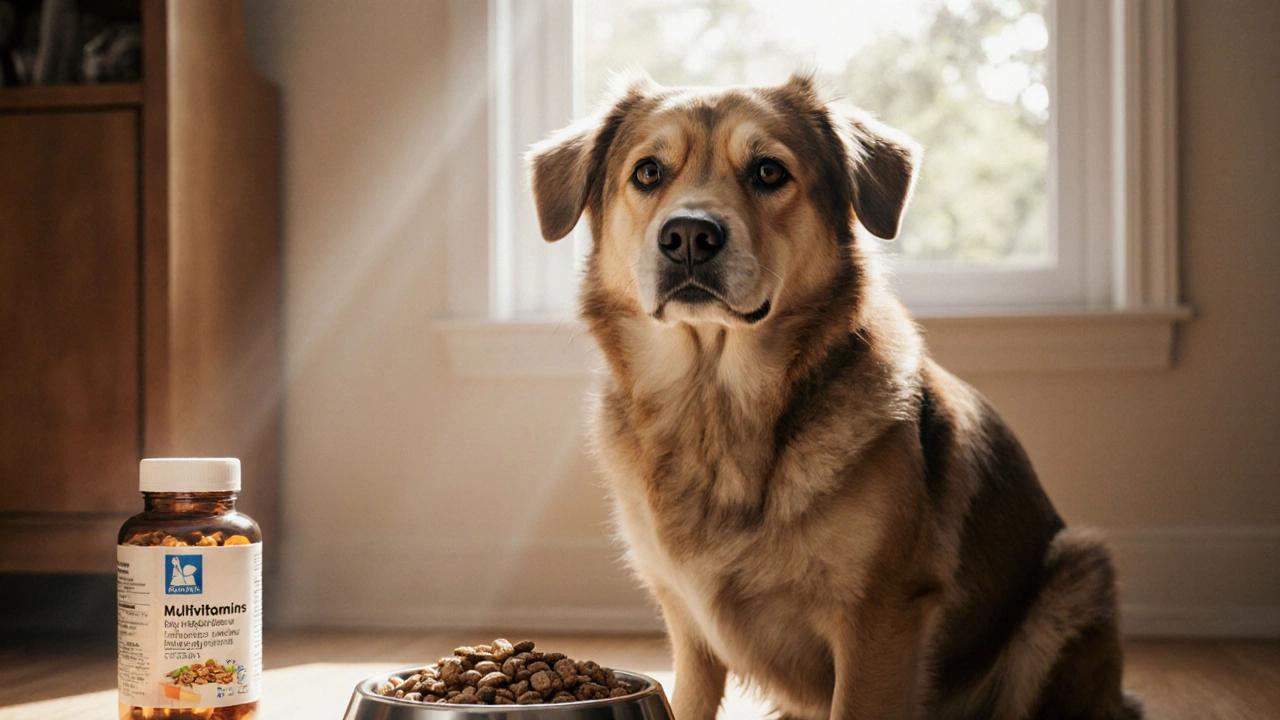Dog Vitamins: What Really Works and What to Avoid
When it comes to dog vitamins, nutritional additives designed to support a dog’s health when diet alone isn’t enough. Also known as dog supplements, they’re not magic pills—they’re tools that work only when there’s a real need. Most healthy dogs eating a balanced, commercial dog food don’t need extra vitamins. But if your dog is older, has a medical condition, eats homemade meals, or has skin or joint issues, the right supplements can make a real difference.
Not all dog supplements, products added to a dog’s diet to provide nutrients not fully covered by their food are created equal. Some are backed by science, like glucosamine for joint support or omega-3s for skin and coat health. Others? They’re just expensive filler. Vets rarely recommend things like coconut oil for dogs because the evidence is weak—and the risks, like weight gain or pancreatitis, are real. That’s why you need to know what’s actually being used in the products you buy. Look for brands that list exact amounts of ingredients, not vague terms like "proprietary blend." If a supplement doesn’t say how much glucosamine or vitamin E it contains per serving, walk away.
dog nutrition, the science of what dogs need to eat to stay healthy, strong, and active is simple in theory but messy in practice. A dog’s needs change with age, size, activity level, and health status. Puppies need different nutrients than seniors. Active working dogs need more energy-dense support than couch potatoes. And dogs with allergies or digestive issues often need targeted support—like probiotics or zinc—for their skin and gut. That’s why a one-size-fits-all vitamin won’t cut it. The best approach? Talk to your vet first. Get a blood test if your dog is showing signs of deficiency—like dull coat, lethargy, or frequent infections. Then fill gaps, don’t overdo it.
Too many dog owners think more vitamins = better health. That’s not true. Over-supplementing can be dangerous. Too much calcium can hurt growing puppies. Too much vitamin D can poison a dog. And some human vitamins, like those containing xylitol or iron, are deadly to dogs. Always check labels. Always consult your vet. And never assume a supplement is safe just because it’s sold in a pet store.
What you’ll find below are real, practical guides based on what vets and pet owners are actually using. From how to pick the right joint supplement for your senior lab, to why some dog owners swear by fish oil—and others avoid it—these posts cut through the noise. You’ll see what works, what’s a waste, and what could even hurt your dog. No fluff. No marketing hype. Just clear, honest advice you can use today.
Posted By Bryndle Redding On 5 Jan 2026 Comments (0)
What Is the Most Important Vitamin for a Dog?
Vitamin D is the most critical vitamin for dogs because it regulates calcium and phosphorus for strong bones and heart health. Most dogs get enough from quality kibble, but homemade diets often lack it-and too much can be deadly.
READ MOREPosted By Bryndle Redding On 18 Nov 2025 Comments (0)
How to Know What Vitamins Your Dog Really Needs
Most dogs don't need extra vitamins if they eat balanced food. Learn when your dog actually needs supplements, what signs to watch for, and how to avoid dangerous mistakes with dog vitamins.
READ MORE
